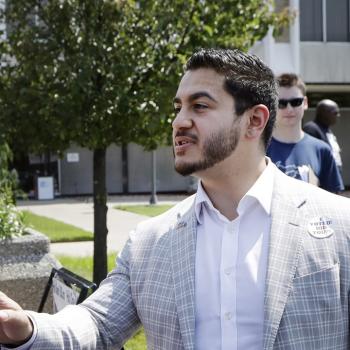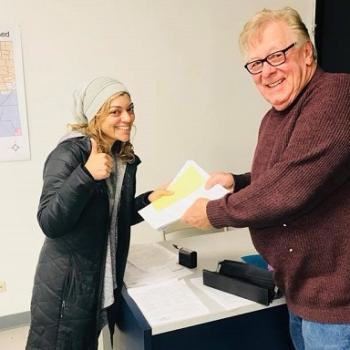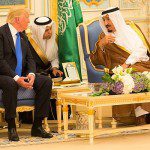 |
|
Author Mohsin Hamid
|
September 11 was a turning point for me, a time when I realised it was impossible for me to hate the Western culture and values I grew up with, no matter how much some expected this of me.
The timing of the attack couldn’t have reinforced my beliefs more. On the Saturday before the tragedy, I had spent the day in the western Sydney seat of Auburn. The local Member of Parliament had resigned, and both major parties were trying to woo voters in a seat where 1 in 3 residents were of Muslim background, faith or heritage.
During the weeks leading upto the Auburn by-election, a small team of us hosted meetings for candidates and party officials with local constituents. MP’s and activists from both parties came to realise that their long-term political futures lay in cultivating voters of all ethnic and religious backgrounds. That meant getting to know Muslims at a grassroots level.
On the Tuesday evening after the by-election, we had a debriefing session. We were pleased with the progress we’d made, and were planning further outreach work. At around 10pm, we called it a night. I drove home and walked through the front door to see my parents both awake, their eyes glued to the TV.
“Someone has attacked the Twin Towers. Sit down quickly and watch,” my mother said. I dropped my things and sat down with them, watching what seemed to be a scene out of a movie.
Over the next few days, it became clear that this was not going to be a repeat of Oklahoma. The Michigan Militia were nowhere to be found. The suspects were Muslim, even if Sikhs bore the brunt of the early reprisal attacks.
Like most Australians, I was swept up by the emotion of the event. The most appropriate response for me was to increase the level of my engagement with the mainstream. If Imam Hamza Yusuf could visit the White House, I could plant the seeds of an eventual move into federal politics. Within weeks, I took the first step by nominating for a hard-luck seat in which I had no chance of winning but every chance of achieving a good swing.
Yet I was horrified by the responses of some Muslims. One Palestinian Muslim wrote a letter to the editor of a major newspaper saying that the September 11 attacks represented rough justice for the dirty role played by the US in supporting Israel. I could not understand how these people could think like this.
A few days ago, I started revisiting these emotions when I picked up a copy of Mohsin Hamid’s The Reluctant Fundamentalist. Hamid recently visited Australia for the Sydney Writer’s Festival, and I was fortunate to have the chance of catching up with him to discuss the main character in his novel, a Pakistani-born New York business analyst.
Changez was a brilliant young man who topped his district in his high school exams in Lahore and received a scholarship to study at Princeton. Changez kept up his achievements, scoring no grade other than A’s in all his subjects. He is then recruited by a boutique New York firm specialising in valuation of firms ready for acquisition.
Like so many middle class Pakistanis, Changez is hardly a mullah. His occasional facial hair is more a reflection of laziness than adherence to the sunnah. Changez enjoys his whisky, and soon finds himself in a relationship with the troubled but wealthy Erica, who was part of the city’s arts scene.
Changez’s bosses are impressed with his tenacity, and he is sent to the Philippines on a major assignment. On his last day there, after spending time having drinks with his colleagues, Changez returns to his room. Here’s how Changez describes the scene:
“I turned on the television and saw what at first I took to be a film. But as I continued to watch, I realised that it was not fiction but news. I stared as one and then the other of the twin towers of New York’s World Trade Centre collapsed. And then I smiled. Yes, despicable as it may sound, my initial reaction was to be remarkably pleased.”
What kind of sick demented creature could smile watching buildings collapse and innocent people dying?
Changez worked in New York. His office was likely around the corner from the WTC. He perhaps knew people who worked there. More importantly, Changez had been accepted by America’s academic and corporate elite with open arms. Through Erica, he also had access to the artistic and cultural elite. Changez was in an enviable position, living what the clich calls the American dream. Is this how Changez, still to some extent a visitor, behaves to his hosts? Is this the thanks he gives for America’s generosity?
Hamid’s novel is a monologue. Changez stumbles across an American walking through the old Anarkali district of Lahore. He engages the man in what seems to be a day-long conversation, relating to the man his entire life story like some Forrest Gump character minus the southern drawl and plus the record of academic and professional success.
Hamid acknowledges his character is troublesome, a young man with a huge chip on his shoulder. Changez may have lived the American dream, but he could not shake off a sense of resentment and jealousy toward the United States. What made Changez smile was not the deaths of a handful of hijackers and some 3,000 innocent people but rather the destruction of a symbol of American power.
“I wanted to explore the kind of thinking and psychosis I saw in quite a few Muslims after 9/11,” Hamid told me. “I was troubled by it, but I also wanted to understand it. Many people simplify these feelings by labelling people like Changez religious fanatics. My job as a novelist is to complicate things and explore their reality.”
Changez is a character with a huge chip on his shoulder who feels jealous of what he sees as American power and arrogance. But Changez is no archetypal mullah. The only time he mentions God in the novel is when he successfully clinches his New York job. He happily drinks alcohol even in Pakistan. His family are of aristocratic stock, though the sources of their wealth are fast losing their income generating capacity.
Hamid is troubled by the growth of racism on both sides of the supposed civilisational divide. He wants to show that the “us” and “them” mentality doesn’t explain the complex emotions of those finding themselves swinging between both sides. “In reality, there is no ‘us’ and ‘them’. What we have on this planet are individuals with enormously complex mixtures of emotional and political attachments. Often these lead people to resent you or even hate you. But rarely will they harm you unless they have some underlying psychopathy or they are seeking revenge because they feel caught in a cycle of violence.”
Hamid is scathing of what he describes as the “We Hate Islam brigade of Muslim writers”. He includes in this category Somali-born ex-Muslim Ayaan Hirsi Ali, who also toured Australia as part of the Sydney Writers’ Festival to promote her autobiography Infidel. “I have no argument with her sharing the horrors of her childhood experiences. But when she claims 1.2 billion Muslims across the world are somehow to blame for all this, she is just engaging in racism. Still, we need to distinguish between her often valid critiques of Muslim cultures from the racist and reductionist tarring of all Muslims with the same brush.”
Despite living in the UK, Hamid still loves his home town and Pakistan. He wishes hostile critics of Pakistan would learn of its social sophistication. “Pakistan has more Muslims than any Arab country. Yet we have had a female Prime Minister and our most famous talk-show host is a transvestite!”
Hamid’s novel is evidence of the ability of fiction to deal with difficult and sensitive contemporary debates in a manner which enables all sides to understand each other more clearly.
Irfan Yusuf is an associate editor of altmuslim.com and a Sydney-based lawyer whose work has appeared in some 15 mainstream newspapers in Australia, New Zealand and South-East Asia. He also writes regularly online for NewMatilda.com, Malaysiakini.com and Crikey.com.au.













